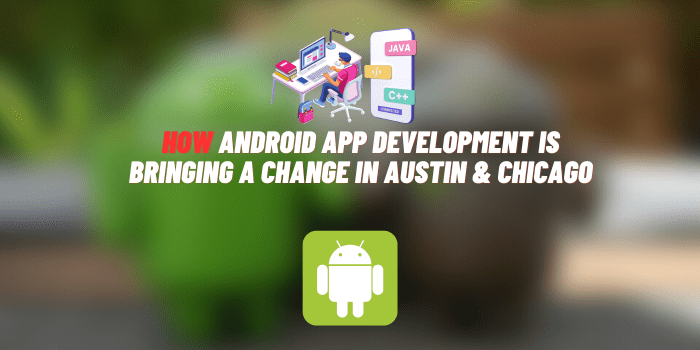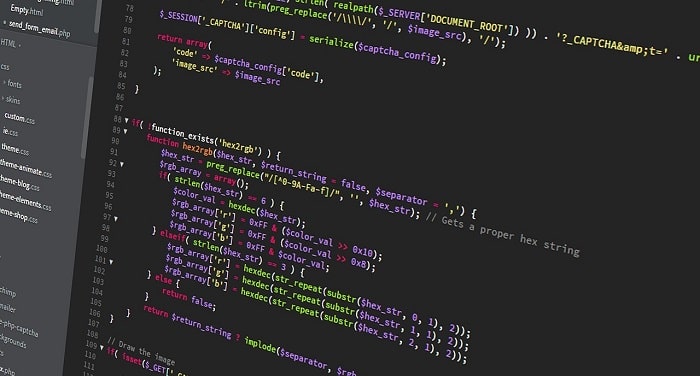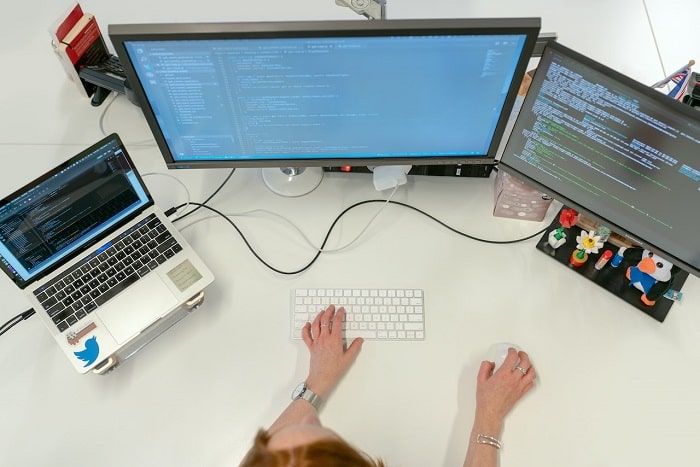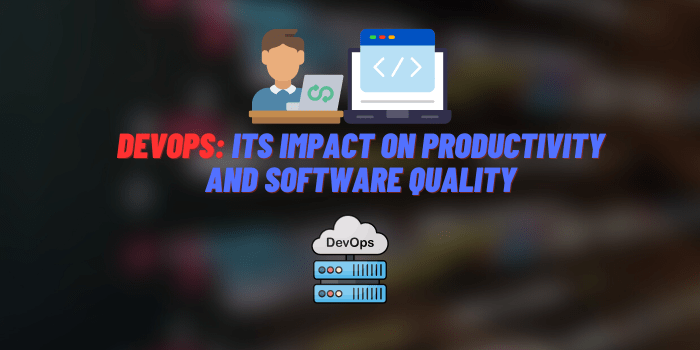How Android App Development Is Bringing A Change in Austin & Chicago – A Detailed Guide
Android app development has witnessed significant growth and innovation in recent years, playing a crucial role in the ever-expanding mobile app industry.
With the popularity of Android devices and the demand for high-quality apps, cities like Austin and Chicago have emerged as key players in this domain.
This article aims to explore and compare the Android application development services offered by different companies in these two megacities; Chicago and Austin, shedding light on their respective tech ecosystems, Chicago and Austin app developers, available resources, and app development trends.
Comparing the Android app development scenes in Austin and Chicago is valuable for developers, entrepreneurs, and industry observers alike.
While both cities are known for their tech prominence, they offer distinct advantages and characteristics that can significantly impact app development endeavors.
Understanding the similarities and differences between the two ecosystems can provide insights into the strengths, opportunities, and challenges they present.
This analysis can help developers make informed decisions regarding where to establish their ventures, seek collaboration, or tap into resources based on their specific goals and requirements.
Through a comparative analysis, this article aims to examine the Android app development scenes in Austin and Chicago, highlighting their tech ecosystems, exploring the presence of tech companies and startups, discussing the role of incubators and accelerators, and identifying the unique advantages each city offers to Android app developers.
Tech Ecosystem

Austin’s Tech Ecosystem
Austin has fostered a robust tech industry known for its innovation and entrepreneurial spirit.
The city’s vibrant startup culture, coupled with its favorable business environment, has attracted numerous tech companies, large and small.
The presence of renowned technology events, further enhances Austin’s reputation as a hub for tech enthusiasts.
This city boasts a diverse range of tech companies and startups, spanning various sectors like mobile technology, e-commerce, software development, and more.
The collaborative and supportive atmosphere within the Austin tech community contributes to its growth and success.
Austin is home to several incubators and accelerators that provide essential resources and mentorship for startups.
Organizations support early-stage companies, offering access to funding, mentor networks, and workspace.
These programs play a crucial role in nurturing the Android app development scene by providing guidance and support to aspiring entrepreneurs.
Chicago’s Tech Ecosystem
Chicago’s tech industry has experienced substantial growth in recent years, with a focus on diverse sectors such as fintech, healthtech, and logistics.
The city’s strategic location, robust infrastructure, and talented workforce contribute to its thriving tech ecosystem.
Chicago hosts a wide array of established tech companies, as well as a burgeoning startup scene. Startups have gained recognition for their innovative approaches.
The city’s diverse economy and access to various industries create ample opportunities for Android app developers to collaborate and make an impact.
This city boasts numerous incubators and accelerators that foster entrepreneurial growth.
Organizations provide a supportive environment for startups, offering mentorship, networking opportunities, and access to capital.
These initiatives contribute to the development of the Android app development scene by nurturing talent and facilitating collaboration.
Comparison of the Tech Ecosystems

Similarities and Differences
Both Austin and Chicago exhibit thriving tech ecosystems with strong tech communities, a wide range of companies and startups, and supportive resources.
However, there are notable differences. Austin’s ecosystem is characterized by its startup culture and a higher concentration of smaller tech companies, fostering a close-knit community.
In contrast, Chicago’s ecosystem is more established, with a mix of established companies and startups, and benefits from its position as a major business hub.
Unique Advantages of Each City
Austin’s advantage lies in its reputation as a hotbed for innovation and creativity, with a strong focus on fostering startups and entrepreneurial ventures.
The city’s collaborative nature and supportive ecosystem provide opportunities for Android app developers to experiment and create groundbreaking apps.
On the other hand, Chicago offers the advantage of being a major business and finance center, providing access to diverse industries and potential corporate clients.
The city’s established infrastructure and resources can benefit Android app developers looking to cater to enterprise or industry-specific needs.
Talent Pool and Education
Availability of Android App Developers
Both Austin and Chicago benefit from a strong talent pool of Android app developers.
The demand for skilled developers has fueled the growth of local communities, leading to an abundance of experienced professionals in both cities.
Android developers in these areas have a proven track record of creating successful apps and contributing to the overall app development scene.
Educational Institutions and Programs
Austin’s Educational Landscape
Austin hosts several renowned educational institutions offering programs relevant to app development.
The University of Texas at Austin, for instance, provides computer science and software engineering programs that equip students with the necessary technical skills.
Additionally, coding boot camps and specialized training centers offer focused courses in Android app development, allowing aspiring developers to acquire practical skills efficiently.
Chicago’s Educational Landscape
Similarly, Chicago boasts prestigious universities and colleges that offer relevant programs for aspiring Android app developers.
Institutions like the University of Illinois at Chicago, Northwestern University, and the Illinois Institute of Technology provide comprehensive computer science and software engineering curricula.
These programs cultivate strong foundational knowledge and technical expertise among students.
Comparison of Talent Pool and Education

Skillsets and Qualifications
Both Austin and Chicago produce highly skilled Android app developers.
The talent pool in these cities possesses a solid understanding of programming languages, mobile app development frameworks, and UX/UI design principles.
They are adept at utilizing various tools and technologies related to Android app development.
Collaboration Between Academia and Industry
In terms of collaboration between academia and industry, both cities exhibit initiatives that bridge the gap between theoretical education and practical experience.
Educational institutions often engage in partnerships and joint projects with local tech communities and industry leaders.
This collaboration allows students to gain real-world exposure and industry insights, enhancing their readiness to contribute to the Android app development field upon graduation.
Resources and Support

Developer Tools and Resources
Both Austin and Chicago offer a wealth of developer tools and resources to support Android app development.
Co-Working Spaces and Tech Hubs
Austin’s tech hubs and co-working spaces
Austin hosts numerous co-working spaces and tech hubs that provide a conducive environment for Android app developers.
These spaces offer collaborative workspaces, networking events, and knowledge-sharing platforms, fostering a sense of community among developers
Chicago’s Tech Hubs and Co-Working Spaces
Similarly, Chicago boasts a range of co-working spaces and tech hubs that cater to the needs of Android app developers.
These spaces provide dedicated areas for developers to work, collaborate, and access resources.
They often organize industry events, hackathons, and workshops to facilitate learning and networking within the developer community.
Comparison of Resources and Support
Access to Funding and Grants
Both Austin and Chicago offer access to funding opportunities and grants for Android app developers.
Local organizations, venture capital firms, and government initiatives provide financial support to promising app development projects.
Developers in these cities can explore options such as startup accelerators, pitch competitions, and government grants to secure funding for their Android app ventures.
Networking and Mentorship Opportunities
Both cities foster networking and mentorship opportunities for Android app developers.
Meetup groups, developer conferences, and industry events serve as platforms for developers to connect, share knowledge, and collaborate on projects.
Additionally, mentorship programs and industry-focused organizations facilitate valuable guidance and support from experienced professionals, helping developers navigate challenges and enhance their skills.
App Development Trends

Emerging Trends in Austin
Austin’s Android app development scene is at the forefront of several emerging trends.
One notable trend is the increasing adoption of cross-platform development frameworks like Flutter and React Native.
These frameworks enable developers to build apps that work seamlessly across multiple platforms, reducing development time and effort.
Another trend is the integration of augmented reality (AR) and virtual reality (VR) technologies in Android apps.
From gaming and entertainment to e-commerce and education, AR and VR enhance user experiences and open up new possibilities for innovative app development in Austin.
Emerging Trends in Chicago
Similar to Austin, Chicago’s Android app development scene is witnessing the emergence of exciting trends.
One such trend is the growing focus on cross-platform development, allowing developers in Chicago to create apps that can run on various platforms without compromising functionality or user experience.
Additionally, there is a notable emphasis on integrating AR and VR technologies into Android apps, enhancing engagement and interaction.
Furthermore, the Internet of Things (IoT) is gaining traction in Chicago’s app development landscape, as developers explore ways to connect and control smart devices through Android apps.
Comparison of App Development Trends
Cross-platform development: Both Austin and Chicago developers recognize the benefits of cross-platform development frameworks. This trend enables efficient code sharing, faster development cycles, and broader audience reach.
Augmented reality (AR) and virtual reality (VR): The adoption of AR and VR technologies is prominent in both cities. Developers leverage these technologies to create immersive experiences and unlock innovative app solutions.
Internet of Things (IoT): The IoT trend is prevalent in both cities, showcasing the importance of connecting Android apps to a network of smart devices. This enables users to control and monitor various IoT devices seamlessly.
Concluding Thoughts
In this comparative analysis, we explored the Android app development scenes in Austin and Chicago.
We discussed their tech ecosystems, talent pools, available resources, and app development trends.
Both Austin and Chicago offer thriving Android app development scenes, characterized by vibrant tech ecosystems, ample resources, and a skilled talent pool.
Developers in both cities benefit from collaborative communities, access to cutting-edge technologies, and a range of educational opportunities.
Looking ahead, the Android app development scenes in Austin and Chicago hold immense potential for growth and innovation.
As emerging technologies continue to shape the industry, developers in both cities are well-positioned to capitalize on trends like cross-platform development, AR/VR integration, and IoT.
By leveraging their unique advantages and fostering collaboration, Austin and Chicago are poised to make significant contributions to the Android app development landscape in the future.






